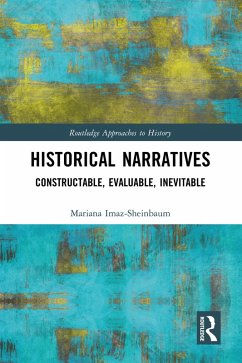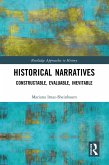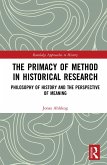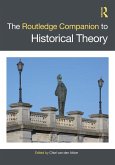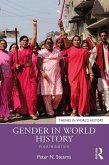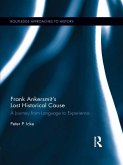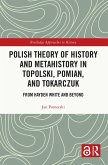Dieser Download kann aus rechtlichen Gründen nur mit Rechnungsadresse in A, B, BG, CY, CZ, D, DK, EW, E, FIN, F, GR, HR, H, IRL, I, LT, L, LR, M, NL, PL, P, R, S, SLO, SK ausgeliefert werden.
"In this original philosophy of history book, Mariana Imaz-Sheinbaum shows the persistent relevance of narrative in historical explanations and the cognitive principles that underlie narrative construction. Appealing to Gestalt psychology she finds the bases for a reunion between narrative and rationality. The book presents actual historical cases to illustrate the subject and makes it useful and attractive to historians."
Verónica Tozzi, Department of Philosophy, University of Buenos Aires, Argentina.
"Analytical philosophy of history is back. Mariana Imaz-Sheinbaum successfully recovers the importance of narrative in historical explanation. The book offers a non-reductionist, naturalized account of historical narratives and proposes an innovative theory of narrative construction and evaluation. Must read for scholars interested in postnarrativist approaches, historical realism as well as relations between narratives and rationality, knowledge and understanding, history and aesthetics. The book develops a very novel positive account of history, one that sketches a non-determined and open future, a future that allows us the opportunity to reinvent ourselves."
Ewa Domanska, Professor of Human Sciences, Adam Mickiewicz University in Poznan, Poland.
"Through a series of thoughtful and original philosophical and historiographical analyses, Mariana Imaz-Sheinbaum sheds much needed light on the principles guiding historians' work, exposing the inner workings of narrativization and reaffirming its cognitive inevitability. A timely reminder of the radical potential of thorough and careful scholarship!
With this series of thoughtful and genuinely fresh philosophical and theoretical analyses, she exposes the inner workings of narrativization and reaffirms its cognitive inevitability. This deep dive into the principles guiding historians' work provides a timely reminder of the radical potential of careful scholarship!"
Kalle Pihlainen, Department of Philosophy, History and Art Studies, University of Helsinki, Finland.

